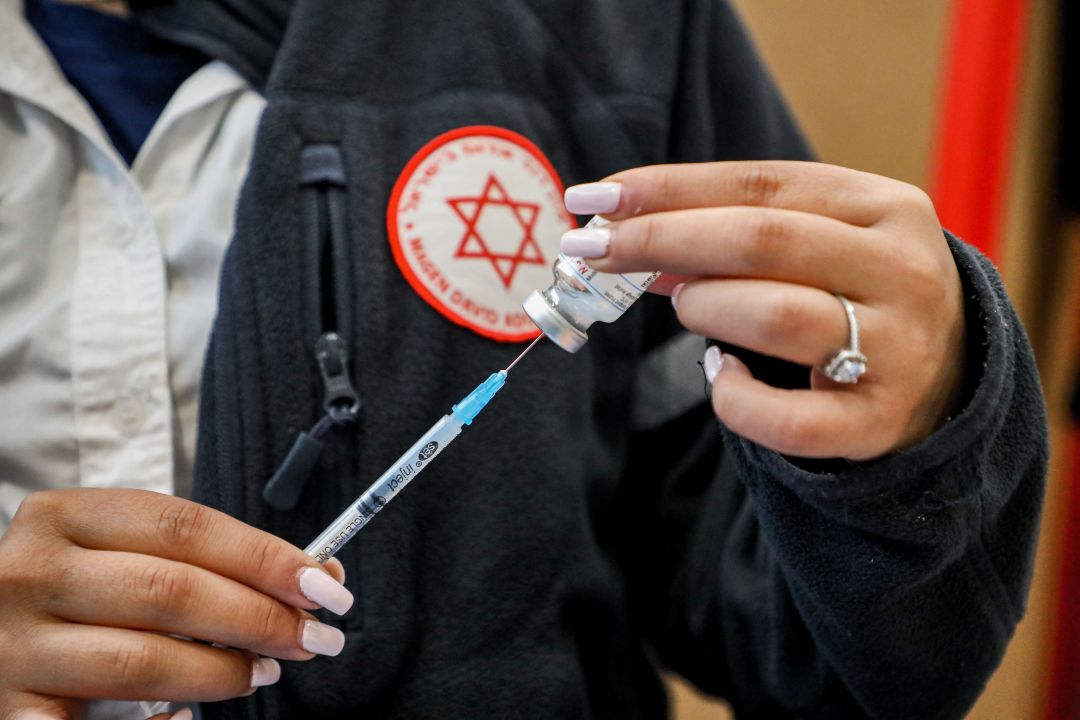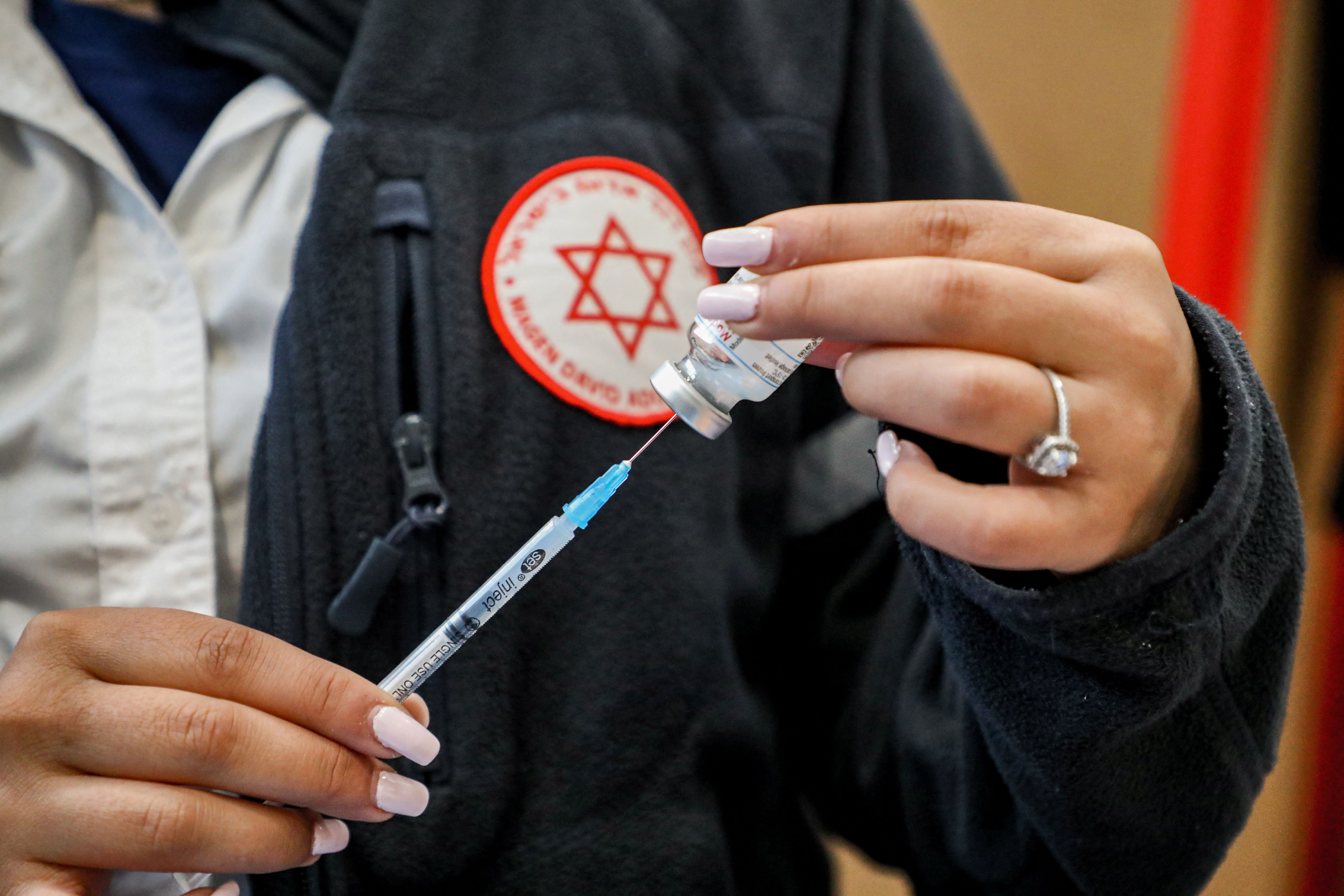Israel has been working closely with other countries and international companies, developing and producing vaccines against Covid-19. At the same time, the Middle Eastern country is rapidly improving relations with its Gulf neighbours, the latest evidence being the appointment of a new UAE ambassador to Israel.
A major shift has taken place in Israel — 20 years ago the country was under siege from terrorists, with bus bombings rocking Jerusalem and terror attacks in the heart of Tel Aviv. Just a few years ago Israel was fighting a major war in Gaza against Hamas, a war that is the subject of an inquiry by the International Criminal Court.
For many years Israel has attempted to re-brand itself using public diplomacy and showcasing its tech sector and vibrant society. However, these accomplishments were often overshadowed by the perception of Israel as a conflict zone. The change in perception has come slowly and Israel’s success in vaccinating the public is one example of how the country stands out.
The revolution in Israeli affairs is part of a much larger foreign policy story
Israeli Prime Minister Benjamin Netanyahu said that by joining forces, three small countries — Israel, Denmark and Austria — could better meet current challenges, a rare example of international co-operation.
On the European front, Israel is doing well and in the Middle East the country’s new deals with the UAE and Bahrain are leading to economic initiatives and even potentials in the defence sector. The Gulf states and Israel have many common interests in the region and there have been persistent rumours that Saudi Arabia could join its neighbours in moving closer to Israel.
During the Obama administration, US secretary of state John Kerry seemed to hold out the prospect for peace with the Gulf as a way to pressure Israel, asserting that Israel could only have peace if it did what the White House wanted on the Palestinian issue. ‘There will be no separate peace between Israel and the Arab world,’ he said in 2016. Kerry was adamant at the time, saying ‘no, no, no and no’ to the chances of such a peace. His point was that a separate peace was impossible unless Israel made concessions to the Palestinians. Israel could only have peace with the Gulf via Palestine, essentially giving the Palestinians a veto and also letting Washington pressure Israel.
This plan has not only failed to materialise but some 130,000 Israelis went to Dubai last year. Israel and the UAE were able to normalise relations without the Kerry conditions. The US State Department has now said that Saudi Arabia and Israel might forge a historic peace. ‘Looking ahead, Saudi actions will determine how much of this ambitious, shared, positive agenda we can achieve,’ the Department’s spokesman Ned Price said earlier this month. It can only happen in a partnership with Saudi Arabia that ‘respects America’s values’.
This is a huge reversal from the 2016 approach, which sought to make sure Riyadh didn’t move toward peace unless Israel changed. Now the US is saying that it’s Saudi Arabia that needs to change and that the US supports Israel opening relations with countries throughout the region.
The Trump administration played a key role in this, signalling to the Gulf that it would support peace deals — abandoning the previous narrative whereby the US pressured the Gulf against peace until Israel made concessions on the Palestinian front. This helped empower Arab leaders who had wanted closer relations with Israel and were already quietly meeting Israeli officials, but who were concerned about appearing out of step with Washington. Saudi Arabia’s Crown Prince Mohammed bin Salman’s support for this was essential and Riyadh’s close ties with the US during the Trump years made it possible. While Kerry has now returned as a climate tsar for the new administration, the Biden team appears to have embraced the new ties Israel has.
The revolution in Israeli affairs, from Covid and the vaccine to how the US sees Israel-Gulf ties, is part of a much larger foreign policy story that also involves closer strategic relations with India and emerging partnerships with Greece and Cyprus, as well as better ties with Egypt and Jordan.
The reason for Israel’s success in the last decade can be pinned on the country reducing tensions with the Palestinians and also honing its military operations to precision strikes in places like Syria, while avoiding a new round of conflict in Gaza or Lebanon. This is a landmark era of peace for Israel considering that it had wars basically in every decade of its existence, from 1956 to the 1967 six day war, 1973 and 1982, 1987 and 2000; 2006, 2009, 2012 and 2014. Maintaining Israel’s strength in the face of adversaries and improving its ties through Covid efforts and new gas, defence and tech deals is key to Israel’s image and outreach in the next decade.







Comments